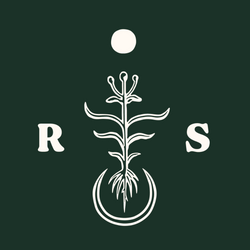In the realm of natural health and wellness, the concept of bioavailability holds a pivotal role in unlocking the full potential of botanicals and fungi extracted products or compounds. But what exactly does bioavailability entail, and why is it crucial for our overall well-being? Let's embark on a journey to explore the significance of bioavailability, its connection to gut health, and the origins of bioavailable supplements, while delving into the remarkable uses and processes of bioavailable botanicals and fungi, including those indigenous to various cultures worldwide.
Understanding Bioavailability:
Bioavailability refers to the degree and rate at which a substance, such as a nutrient or medicinal compound, is absorbed and utilised by the body. Essentially, it determines how effectively the active components of botanicals and fungi extracted products or compounds can reach their target sites within the body to exert their therapeutic effects.
Factors Influencing Bioavailability:
Several factors can influence the bioavailability of botanicals and fungi extracted products or compounds, including:
- Formulation: The form in which a supplement is consumed—whether it's capsules, tinctures, powders, or extracts—can significantly impact its absorption and bioavailability.
- Solubility: The solubility of the active compounds in water or fat can affect their absorption in the gastrointestinal tract. For instance, fat-soluble compounds may require the presence of dietary fat for optimal absorption.
- Digestive Health: The health of the digestive system, including the integrity of the gut lining and the diversity of gut microbiota, plays a crucial role in nutrient absorption and bioavailability.
- Interactions: Interactions with other nutrients, drugs, or compounds in the body can either enhance or inhibit the absorption and utilisation of botanicals and fungi extracted products or compounds.
Importance of Bioavailability:
The bioavailability of supplements is paramount for ensuring their efficacy in promoting health and wellness. Optimal bioavailability ensures that the active components of botanicals and fungi extracted products or compounds can be efficiently absorbed, metabolised, and utilised by the body, thereby maximising their therapeutic benefits.
Link to Gut Health:
Gut health plays a central role in determining the bioavailability of nutrients from botanicals and fungi extracted products or compounds. A healthy gut microbiome and a well-functioning gastrointestinal tract are essential for optimal nutrient absorption. Conversely, imbalances in gut flora, intestinal permeability (leaky gut), or digestive disorders can impair nutrient absorption and reduce bioavailability.
Origins of Bioavailable Supplements:
The concept of bioavailability in supplements has its roots in traditional healing systems, such as Traditional Chinese Medicine (TCM), Ayurveda, and indigenous healing practices. These ancient traditions emphasised the importance of using pure, organic, and bioavailable botanicals and fungi extracted products or compounds to support health and well-being. Through centuries of empirical observation and refinement, herbalists and healers developed methods to enhance the bioavailability of medicinal plants and fungi, ensuring their potency and effectiveness.
Uses and Processes of Bioavailable Botanicals and Fungi:
Across various cultures worldwide, bioavailable botanicals and fungi have been revered for their therapeutic properties and used to support health and well-being. Let's explore some examples:
- Lions Mane: Known for its cognitive-enhancing properties, the Lions Mane mushroom contains bioactive compounds like hericenones and erinacines that may support brain health and nerve regeneration.
- Reishi: Revered as the "Mushroom of Immortality" in TCM, the Reishi mushroom is prized for its adaptogenic and immune-modulating effects. Its bioactive compounds, including triterpenes and polysaccharides, contribute to its health-promoting properties.
- Turkey Tail: Recognised for its immune-enhancing benefits, the Turkey Tail mushroom contains polysaccharide compounds like beta-glucans, which may support immune function and overall wellness.
- Chaga: Rich in antioxidants and immune-modulating compounds, the Chaga mushroom has been traditionally used to support immune health, reduce inflammation, and promote vitality.
- Cordyceps: Celebrated for its energy-boosting effects, the Cordyceps mushroom contains bioactive compounds like cordycepin and adenosine, which may enhance athletic performance and stamina.
Additional Bioavailable Botanicals:
- Sceletium/Kanna: Indigenous to South Africa, Sceletium or Kanna is revered for its mood-enhancing and stress-relieving properties. Its bioactive alkaloids, including mesembrine, interact with neurotransmitter pathways to promote relaxation and emotional well-being.
- Echinacea Purpurea (Cone Flower): Widely used in Western herbal medicine, Echinacea Purpurea is prized for its immune-boosting effects. Its bioactive compounds, such as alkamides and polysaccharides, stimulate immune cell activity and enhance immune function.
In conclusion, bioavailability is a fundamental aspect of harnessing the therapeutic potential of botanicals and fungi extracted products or compounds for promoting health and well-being. By ensuring optimal absorption and utilisation of nutrients, bioavailable supplements can support our body's innate healing mechanisms and contribute to overall vitality and resilience. As we continue to explore the synergistic relationship between nature and health, let us embrace the wisdom of ancient healing traditions and the advancements of modern science to cultivate a holistic approach to our wellness.

